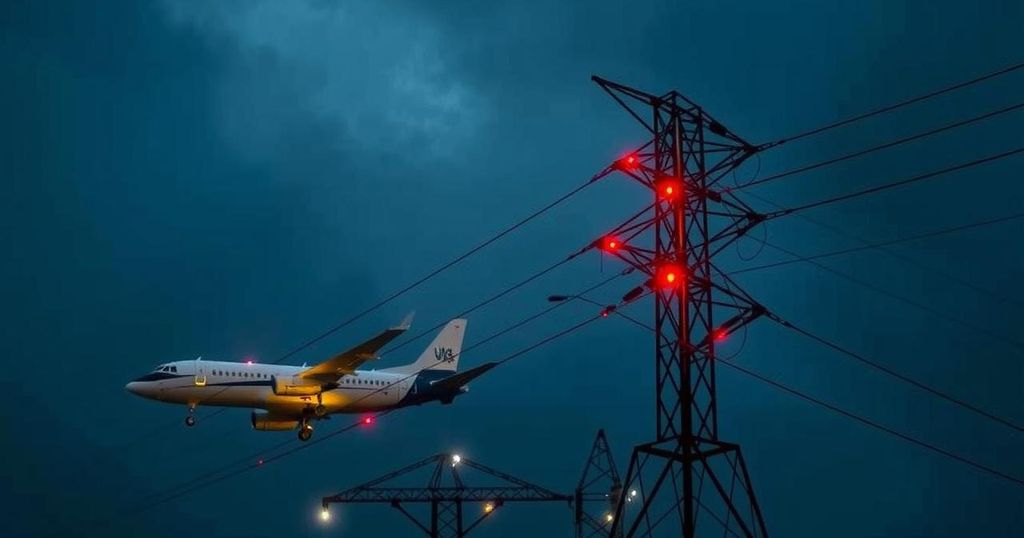Cuba Faces Extended Blackouts Amid Hurricane Onslaught

As Hurricane Oscar approaches, millions of Cubans enter the third day without power after successive grid failures. Only 16% of the country has seen power restored, affecting daily life severely. Officials attribute the issues to aging infrastructure, U.S. sanctions, and recent natural disasters. Protests have arisen in response to the crisis, while health services continue amid these disruptions.
Millions of Cubans faced a third consecutive day without electricity, as efforts to restore power were unsuccessful overnight. The Cuban Electrical Union reported that only 16% of the nation had regained power before the aging electrical infrastructure faltered once again late Saturday. This incident marks the third collapse of Cuba’s energy grid since Friday, affecting the vast majority of the country’s 10 million residents, who have been enduring prolonged blackouts without a clear timeline for restoration. The situation is exacerbated by the impending arrival of Hurricane Oscar, which has already made landfall in The Bahamas. With maximum sustained winds of 80 mph, the hurricane is projected to reach Cuba’s northeastern coast later today. Although some weakening is anticipated post-landfall, the storm may still be classified as a tropical storm as it continues its path northward away from Cuba. The series of blackouts began with a significant failure at one of Cuba’s principal power plants on Friday, leading to nationwide disruptions. Despite initial reports of power restoration, the grid collapsed again the following morning, raising concerns about a deeper crisis for a nation already struggling with power shortages. Reliable electricity is crucial not only for daily activities but also for maintaining clean water and preserving food supplies. In the capital city of Havana, residents resorted to social media platforms to share updates on power availability and coordinate assistance, such as storing medications in refrigerators of the few fortunate individuals with electricity or generators. As residents waited in long lines for basic necessities like bread, frustrations boiled over when scarcity led to scuffles among those vying for limited supplies. Tourism has also been affected; visitors in Havana encountered operational difficulties, with José Martí International Airport functioning on emergency power and lacking essential services like air conditioning and ticket printing. Amid the turmoil, some protests have erupted in response to the energy crisis, reflecting growing unrest among the populace. Cuban officials have attributed the power shortages to a combination of U.S. sanctions, damage from recent hurricanes, and the deterioration of the nation’s infrastructure. In a televised announcement, Prime Minister Manuel Marrero Cruz stated that economic activities had been curtailed in an attempt to conserve electricity for the populace. Health Minister José Angel Portal Miranda reassured that health facilities are operating on backup generators to ensure continuity of critical services.
Cuba has faced ongoing challenges with its electrical grid, which is characterized by aging infrastructure and vulnerability to natural disasters. The current crisis highlights the nation’s struggles to maintain power amidst diverse factors such as economic sanctions imposed by the United States and severe weather events that disrupt utility services. The implications of these blackouts extend beyond mere inconvenience, significantly affecting public health and safety due to the reliance on electricity for water supply and food preservation.
In summary, the electrical crisis in Cuba represents a multifaceted challenge that has resulted in widespread power outages affecting millions. Compounded by the threat of Hurricane Oscar, the nation finds itself navigating a complex landscape of economic and environmental difficulties. Ongoing governmental attempts to manage the crisis underscore the precarious state of the country’s aging infrastructure, and citizen frustrations highlight the urgent need for resolution and support.
Original Source: www.cnn.com







